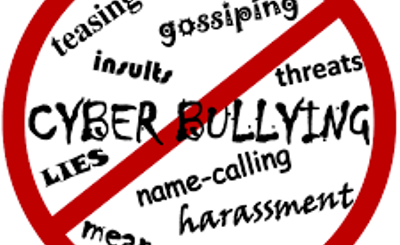Kenya is first becoming a hub of cybercrime activities especially cyberharassment. The advent and continued advancement of technology provide a platform to advance this, and other, forms of online violence.
Today, celebrities and famous people are not the only targets of cybercrimes, ordinary people fall victim too. It is important to point out that a majority of the victims of cyberharassment are women.
Threats, insults, ridicule and revenge porn are among the most common forms of victimization. The repercussions? They can be severe and while the increasing cases are opening up discussions on how such cybercrimes can be prevented and dealt with, the society is still largely mum. Peoples’ perception and attitude towards these crimes are largely uncaring.
Concerns have been raised over the role that technology plays in extending various forms of violence. Over the last couple of years, numerous nude photos were shared online without the consent of the victims. One such case was a woman in her mid-twenties. In 2017, her nude photos had been featured in one of the Kenyan gossip sites and the article labeled her a “loose” woman. This devastated her and requests to have the photos taken down went unanswered for several days. This left her distraught and humiliated.
In 2013, an episode of a blind dating show dubbed Tujuane exposed a young woman to cyberharassment. While her attitude towards her date was considered negative by some, the kind of punishment she received was not justified. After the episode aired, she became a target with some threatening violence towards her. She faced backlash and bullying such that it was reported that she contemplated suicide at some point. The perpetrators showed no mercy. Empathy was only shown by a few local celebrities but by then, the damage had been done. The society had already given her insensitive labels.
Many Kenyans has been socialized to perceive violence as just physical and that other forms of violence are inconsequential. Psychological and emotional forms of violence are not taken with the seriousness they deserve. Yet, the negative effects of these forms of abuse or harassment can last quite long, sometimes a lifetime. In some cases, if help is not sought, the victims develop suicidal thoughts, attempt or even commit suicide. In others, their self-esteem is affected and may remain tormented for as long as they live.
Serious effects
Cyberharassment can have major psychological impacts on individuals.
This form of harassment can take a toll on someone’s mental, physical, and social well-being.
Below are just but a few examples of the effects:
- Suicidal thoughts and/or suicide attempts
- Depression
- Drugs and self-medication
- Poor physical health including headaches from stress, weight fluctuations, dizziness, fatigue due to lack of sleep, etc.
- Personality changes due to anxiety, anger, self-doubt, guilt, embarrassment, frustration, denial, self-blame, etc.
- Low self-esteem and a sense of helplessness
- Quit or lose job due to concentration problems or deteriorating performance
- Poor academic performance or dropping out in some cases
- Isolation, avoidance of everyday activities and becoming introverted. This may also include avoiding family and friends. In some cases, victims struggle to return to their normal living patterns.
- Become perpetrators of cyberharassment
Challenging societal perceptions
At present, there’s little public sympathy for cyberbullying victims. In some cases, cyberbullies are hailed for their wit when preying on their victims.
Changing social attitudes and norms is perhaps the first step to shifting how various forms of online harassment and abuse are perceived and understood. A 2015 U.N. report dubbed “Wake-up call” equated cyber violence with physical violence with regard to impact. The report stated that both forms of violence are damaging.
Over the past few years, discussions have been held about cyberharassment but societal perceptions about their impact remain largely the same: A big percentage of people do not perceive this as an issue that requires a lot of attention. Perhaps going back to drawing board and developing better ways to raise awareness can be a great start.
Currently, the topic of cyberharassment or violence is given very little airtime yet it is a recurring problem with serious consequences. People in positions of influence can do more to challenge the society to change perception towards this vice. There have been a few cases where some local celebrities have touched on the issue. Popular Kenyan radio presenter Lynda Nyangweso shared her cyberbullying story and also talked about how she dealt with it. Her story was an inspiration and a conversation starter, albeit for a short while. If popular personalities used their influence to address this vice through various platforms, the reach would be wider.
Institutions of learning can also play a big role in educating young people about cyberharassment and its potential effects on the victims. Their place in the society is to endeavor to produce well-rounded individuals and since perpetrators and victims could be students, it is important to incorporate this discussion into the learning process. Also, it is important to empathize that this form of bullying has similar effects on victims as traditional bullying even though a number of factors such as anonymity of the perpetrator can exacerbate its negative consequences. When the perpetrator is anonymous, chances are that they will communicate things they would not utter in a face-to-face interaction
Other ways through which this issue can be addressed are through the pop culture especially films and songs. Online communities can also be a great way. Parents should also talk to their children and monitor their online activities.
Cyberharassment laws & internet governance
Governments need to urgently combat online violence. They must ensure that the victims are able to take legal action against perpetrators. In Kenya, cases of cyberharassment are rarely reported and this boils down to the perceptions that people hold towards this issue. The 2016 Cyber Security and Protection Bill outlaws cyberbullying and electronic distribution of pornography and anyone found guilty is liable to a prison term not exceeding 5 years or a fine not exceeding two hundred thousand Kenyan shillings, or both. The act also states that someone who wrongfully distributes intimate images is liable to a term not exceeding 30 years or a fine of up to three hundred Kenyan shillings, or both. Other countries across the globe have acts that outlaw this vice as well.
The punishment seems fair but further work needs to be done to develop practices to allow this to be implemented effectively. The online space is increasingly growing in importance yet it remains ungoverned and this makes it a cause for concern. It would be important to balance these two integral values. While tech firms and various industry players have pledged commitment to fight cyber violence, their efforts are yet to bear desired outcomes. Facebook had promised to put in place strategies that can monitor online activities in real time but this is yet to be effectual.
One of the main challenges to the governance of cyberbullying is drawing the line between civil liberties such as the freedom of expression and governing victimization. Also, since the cyberspace is a global platform, it is more difficult to come up with shared norms over what constitutes cyberharassment. Despite this, technology can still be used to bring about positive change. Victims can, for instance, use various platforms to share their experiences thus creating awareness. Technology can also facilitate the prosecution of cases since evidence can be collected from various platforms.
Finally, the society needs to do better. Cyberharassment is a real issue affecting people and technology has provided a platform through which this vice can be perpetrated. Various stakeholders including parents, governments, and awareness groups should play their respective roles but above all, a great first step would be a change of attitude towards this issue by first understanding what it is and its potential impact on victims.








Leave a Reply